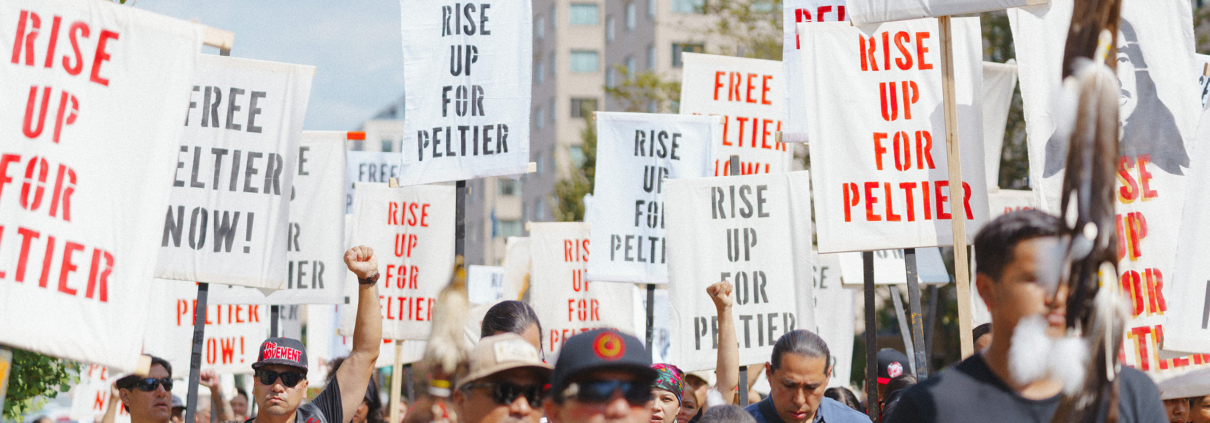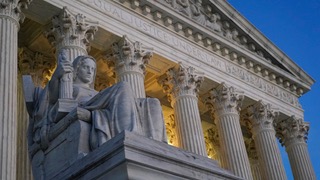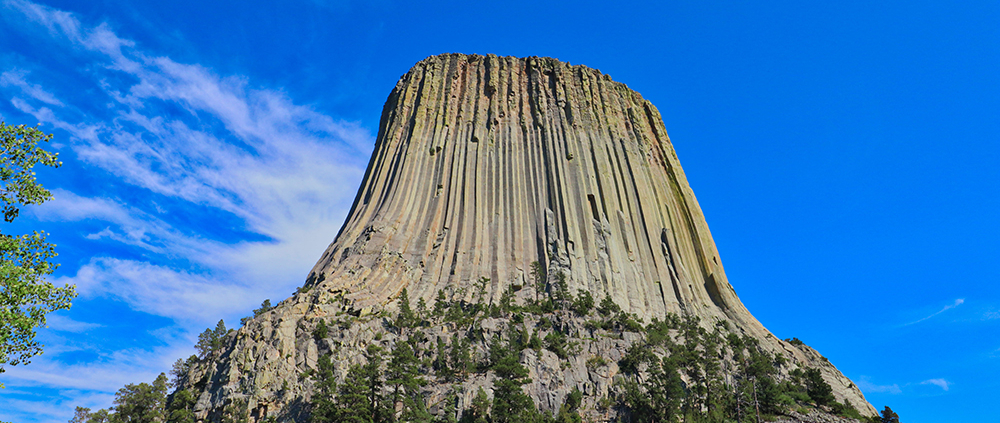Mobilizing Against Renewable Energy and Fossil Fuel Extraction
Our efforts are needed now. We continue to mobilize across Indian Country to stop oil and gas leasing to protect our sacred lands, cultural resources, water, and environments from imminent harm. Presently, the Biden administration is outpacing Trump on issuing oil and gas leases on public lands. The Inflation Reduction Act of 2022 allocates funds for promising increases in renewable energy and health care costs over time, but it does not adequately address or prevent devastation caused by extraction that will compound environmental degradation and climate chaos across the globe. The IRA will reinstate three oil and gas leases, two in the Gulf of Mexico and one impacting the Cook Inlet of Alaska by the end of this year. While the IRA significantly expands offshore leasing for wind energy, it also requires that oil and gas leases be offered over massive areas of the outer continental shelf as a condition of making wind leases available. Progressive policy provisions are supported by NOA, but compromise is not enough with respect to taking action on climate resiliency.
The Indigenous Environmental Network stated that the IRA is, “a distraction from the need to declare a climate emergency while allowing polluting industries to continue business as usual.” Our partners at NDN Collective submitted a letter to President Biden, Senate Majority Leader Chuck Schumer, and House Speaker Nancy Pelosi outlining the misstep of passing a bill that links clean energy with fossil fuel extraction. “When it comes to offshore drilling, the coupling of the expansion of oil and gas with the development of renewables, is not only morally unsound but a betrayal of this Administration’s pledge to combat environmental racism and destruction.”
In unification with the voices heard across Indian Country demanding for the Biden-Harris administration to uphold promises of a transition to clean energy on public lands, NOA is resolute in pursuing efforts to leverage collective power in taking action to protect lands and waters sacred to our peoples. Efforts to eliminate environmental racism and continued devastation of our lands and waters requires true government-to-government meaningful consultation between Tribal Nations and the federal government in any and all decision-making that will impact Indigenous people.
Sign our petition today to voice your support for legislation that will protect our sacred lands, cultural resources, environments, peoples, and places. The petition will be presented to the House Committee on Natural Resources before the end of the year, December 2022. Join us in adding your name as we stand together in support of this landmark legislation.
Sources:
- On drilling in the Arctic, leases continue:
- Cap on prescription drug costs and Medicare, not launching until 2025:
- Biden outpacing Trump with oil and gas leases on public lands: https://www.washingtonpost.com/climate-environment/2022/01/27/oil-gas-leasing-biden-climate/
- Clean energy transition a failure: https://prospect.org/environment/collapsing-clean-energy-transition/
- More on compromises made:https://www.jdsupra.com/legalnews/u-s-senate-passes-the-inflation-6295171/
How the Inflation Reduction Act is Investing in Tribal Communities
Native Organizers Alliance supports the passage of the Inflation Reduction Act being signed into law by President Biden. The bill includes an investment of $272.5 million for our Tribal communities. We must act on this moment as a time to redouble our efforts for speeding up a just transition from fossil fuels through collective organizing and climate advocacy.
According to U.S. Speaker of the House, Nancy Pelosi, the Inflation Reduction Act will pass the House and will be signed into law by President Biden who is a champion of the climate resiliency, tax, and healthcare bill.
The bill’s passage will allocate:
- $150 million for Tribal home electrification, which has been an infrastructure challenge plaguing tribes who have the necessary expertise and authority to electrify homes, but not the financial means to do so.
- $75 million for loans to Tribes for energy development, energy rebate programs offering incentives for homes with high energy efficiency, and for modernizing existing systems to make them more climate-friendly.
- $25 million for climate resilience funding to the Office of Native Hawaiin Relations at the Department of Interior, representing the biggest investment in climate justice ever in history, paid for by corporate taxes according to Senator Mazie Hirono (D) Hawaii speaking to Hawaii News Now.
It also establishes a Tribal Energy Loan Guarantee Program (TELGP) with up to $2 billion available to support tribal investment in energy-related projects such as electricity generation and transmission facilities both renewable and conventional.
In order to pass the bill into law, there were compromises made related to allowing new oil and gas leasing, which continues to cause devastating harm to our lands and our people. According to Indianz.com, tribal leaders are applauding and supporting the bill citing the need for advances in climate protection now with the weight of draughts, storms, fires, and other natural disasters looming.
William Smith, Chair of the National Indian Health Board has stated, “Once perceived as future threats, the impacts of climate change are now upon us. The action taken today demonstrates a renewed respect for Mother Earth and our waters and will focus attention on critically needed resources and alleviating the impact of climate change and transitioning to clean energy.”
Additionally, with this bill savings on health care costs, medicare expenses, and a reduction in pricing of some critical medications alleviate the burden on our elders and our families. There are provisions for inflationary and deficit control that can bring some financial relief to Tribal citizens across nations.
Sunday as the bill passed the Senate, Secretary Haaland said, “As communities across the country continue to face extreme heat, intense storms, and other climate impacts, now is the time to make bold investments.”
Native Organizers Alliance is committed to our mission to mobilize communities to leverage sovereignty and collective power for sacred land and climate protections.
References:
- The bill (click PDF to download): https://www.congress.gov/bill/117th-congress/house-bill/5376/text
- Speaker statement: https://www.reuters.com/world/us/pelosi-says-us-house-will-pass-inflation-reduction-act-friday-2022-08-10/
- Quotes on impacts for Tribes: https://www.indianz.com/News/2022/08/08/inflation-reduction-act-brings-new-climate-and-energy-investments-to-indian-country/
- Tribal Energy Loan Guarantee Program: https://www.energy.gov/lpo/tribal-energy-loan-guarantee-program
- Hawaii News Now interview: https://www.hawaiinewsnow.com/video/2022/08/10/hirono-discusses-inflation-reduction-act-bill-place-term-limit-supreme-court-justices/
- Native News Online article: https://nativenewsonline.net/currents/largest-investment-ever-on-climate-change-passes-senate-including-272-5-million-for-tribes
- Tribal electrification source: https://www.brookings.edu/blog/how-we-rise/2021/07/14/energizing-navajo-nation-how-electrification-can-secure-a-sustainable-future-for-indian-country/
Keystone XL Pipeline is Canceled
On January 20th, 2021 President Joe Biden signed an executive order to cancel the permit for construction of the Keystone XL pipeline.
Native Organizers Alliance has been a partner in the Promise to Protect network of Indigenous activists and Tribal leaders who have been leading the resistance against these extractive industries for over 10 years.
Native People and Allies Pledge to Stop Keystone XL
I’m in Lower Brule, South Dakota, where elected tribal officials, spiritual leaders, Native grassroots organizations, youth groups, and traditional women’s societies have gathered with non-Native farmers, ranchers and others affected by the Keystone XL pipeline. That project to carry tar sands from shale fields in Canada to the Gulf of Mexico threatens our water, our livelihoods and our sacred sites.
We were together Monday when we heard the news Nebraska’s Public Services Commission gave approval to an alternative route for the pipeline.
Yes, we were sad, and angry. But within minutes, we went from being sad to being strategic. That decision opens a new terrain to continue the fight to prevent the building of KXL, and it can be stopped if we build on the strong relationships between Native leadership and non-Native farmers and ranchers. We can leverage the power of organized prayer in a values-led campaign that puts Mother Earth above profit-hungry fossil fuel corporations.
What We Learned in Standing Rock
Many of us are veterans of Standing Rock. We learned so much during those long, cold months at the Oceti Sakowin camp, in our struggle to stop the Dakota Access Pipeline.
We won at Standing Rock, even though the oil is now flowing. Because over 400 tribes came together to stand with the Standing Rock Sioux Tribe for their sovereign, moral and inherent right to protect the Missouri River and Mother Earth.
Native peoples have a unique role to play in building a movement that defends the planet, and in creating a future where we all can live in healthy communities.
Joining Our Struggle
What began as a struggle to protect the Standing Rock Sioux Tribe’s water supply and sacred sites grew into an international movement to protect the water for the 17 million people who live, work and play along the shores of the Missouri. Along the way, we were joined by by thousands more from all around the world.
As we believe, we’re all related, and that all we do in life, and nature has an impact on every one of us.
So the mood at our gathering today is that in the present, we can act on the wisdom and knowledge of our ancestors, and protect future generations from destruction if we work strategically. We must lead with love for humanity, for community and for Mother Earth.
We must plan and organize, not just politically, but also with the prayers that will give us the strength and courage to do what we need to do to stop this pipeline. Tribal leadership and Native communities are the keys to winning this struggle.
TransCanada Knows
The truth is that TransCanada, the pipeline’s builders, aren’t happy. Nebraska allowed their project to proceed, but they didn’t get what they wanted. A new route means TransCanada has to decide if the costs of proceeding are worth it.
TransCanada’s investors must face questions of the viability of building a pipeline that has been fought for years as oil prices have dropped. Quarterly earnings come out December 9, and their shareholders meet on December 15. According to the New York Times, they still haven’t decided whether they will proceed with building the pipeline.
The price of oil is still low. And the movement we started at Standing Rock succeeded in the divestment of $5 billion from the Dakota Access Pipeline. City governments, union pensions and individuals were convinced by the power of the Oceti Sakowin Camp that it was immoral to have their money fund that pipeline. We can do the same with Keystone XL, and TransCanada’s investors know it.
What We See
So what we see here in Lower Brule is that all up and down the new proposed route, there are possibilities to challenge the building of Keystone XL.
Sadly, we’re also gathered near where 210,000 gallons are leaking from the Keystone 1 pipeline. TransCanada has proven that they’re not prepared to deal with this kind of calamity, nor can they protect the precious aquifer and wells that are critical for ranching, irrigating crops and drinking water.
The movement to stop Keystone XL has momentum, because it is grounded in the Indigenous practices of living in harmony with nature. Ourstrategy and tactics are rooted in the inherent responsibility of indigenous communities to do whatever is necessary to protect the land, water and air from destruction.
Our Power Has Grown
Response to this week’s KXL permit decision comes out of years of united resistance between Native and non-Native landowners. Our power has grown since Standing Rock. People now understand that if we build unity, if we build a movement with compassion for Mother Earth and concern for Humankind, we can win the hearts and minds of a broad cross section of people in this country.
And if we beat Keystone XL, we can disrupt the pro-fossil fuel campaign coming from the White House. We will signal an unmistakable challenge to all those running for office in states where American Indians are concentrated that the Native vote is the swing vote, which will be mobilized all the way from prayer camps to the voting booth.
There’s a very keen awareness that this fight is important not only for those who live along the pipeline, but also for how our country can become less dependent on fossil fuels, and we can move towards the protection of our planet.
A Family Reunion
So here in Lower Brule, we’re holding a family reunion: veterans of the first successful KXL fight, the Standing Rock family, with newcomers, Natives with non-Natives. Strategizing, sharing stories and renewing our shared commitment to protecting the sacred from desecration by fossil fuels has made us even stronger.
But the coming battles are going to be new, not like the ones in the past, and will demand all our strength. The traditional indigenous practice is that you must respond to adversity with courage, humility, compassion and love of community as we always have.
The NO KXL movement is being built from a spiritual starting point that’s rooted in the traditional Lakota, Dakota culture and origin stories, in the grassroots and in sovereign treaty rights that have been so often ignored.
Wherever You Are
Together with our allies like 350.org, Greenpeace, and Rainforest Action Network, we “Promise to Protect the Sacred.” So if the need arises, if we have exhausted all local avenues, when we need assistance, people from all over the world will be called to come to Nebraska and South Dakota to physically stop the building of this pipeline.
Wherever you are, please take a moment to remember think about how you can be a part of this historic movement to stop Keystone XL.
Native peoples have a legal, moral, spiritual and inherent right to be caretakers of the planet. The sacred teachings of our cultures reflect the resilience that has brought us this far, by prioritizing kinship, reciprocity and community building. It’s about preserving relationships and living in balance, with all things – natural, human and animal.
Reprinted from CommonDreams.org
Racial Slurs Have No Place in Football

The leaves are changing. The scent of pumpkin spice lattes is in the air. In short, it’s football season. And like millions of my fellow Americans, I love football.
But I’m also American Indian.
So for me, football season also means hearing a racial slur all the time. It’s used by sports teams around the country — and by Washington, D.C.’s National Football League team in particular.
You may know that franchise as the Redskins. I refer to it as the R-word.
Natives have been calling on sports teams to do away with the slur for 50 years, along with other mocking mascots and racist caricatures of Natives employed by teams of all kinds. Professional outfits should know better, but so should schools and communities.
So I celebrated recently, along with much of Indian Country, when California Governor Jerry Brown signed the California Racial Mascots Act into law. It banned the state’s public schools from using the R-word to name sports teams. Schools in four California counties will soon have to rebrand their buildings, logos, uniforms, and mascots.
“We cannot change history or erase the past,” said Dahkota Kicking Bear Brown, president of Native Education Raising Dedicated Students. “But today, as Native students, we shall celebrate this step in the right direction of improving our educational experiences.”
I agree. Now if we can just convince our nation’s leaders to do the same.
My hope faded, though, when I heard Republican presidential candidate Jeb Bush use the R-word not once, not twice, but three times during an interview in October. Then there’s GOP candidate Donald Trump, who proclaimed that Indians are “extremely proud” of the term.
Wrong.
For Native children, the R-word and its associated mascots are demeaning and disparaging, eroding their self-confidence and self-image. Unsurprisingly, peer-reviewed studies have suggested that racist mascots can hurt the performance of Native students.
It’s an additional mockery for an already suffering group of young people whose second-leading cause of death is suicide. And it’s an added insult to people whose treaty rights are still being violated, even today.
Native Americans are regularly confronted with attempts to turn our sacred religious lands over to corporations for profit. In Oak Flat, Arizona, some 2,400 acres of national forest land — protected since 1955 as Apache sacred land — is being handed over to Resolution Copper, a British-Australian mining conglomerate.
Meanwhile Natives continue to protest the Keystone XL pipeline, which would funnel oil mined from tar sands nearly 1,800 miles from Alberta, Canada to the Gulf of Mexico through multiple sovereign Indian territories. The U.S. government never negotiated with the tribes when charting the pipeline, despite the impact it will have on their lands.
And in spite of long-standing poverty, gross health disparities between Natives and non-Natives, and ongoing discrimination, federal funding for Indian health care, housing, and education programs remains paltry.
Most people have the good sense not to use the R-word to our faces. So why would you plaster it across a stadium?
Dropping the R-word alone won’t solve these deep crises in Indian Country. But it’s a crucial step toward restoring the equity, dignity, and democracy taken from the first people of this land.
At the very least, it’ll let us all get back to enjoying football — without the nasty reminder that the rights of American Indians still aren’t fully recognized.
Judith Le Blanc is the Director of the Native Organizers Alliance and an enrolled member of the Caddo Tribe of Oklahoma.
Distributed by OtherWords.org.

 NDN Collective
NDN Collective

